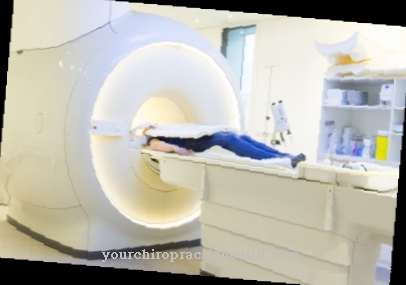The Curative education is a branch of pedagogy that sees itself as "pedagogy under difficult conditions". Remedial pedagogues operate at the interface between pedagogy, special pedagogy and psychology and dedicate their work to children, adolescents and adults who have behavioral problems, impaired development, or are affected or threatened by disabilities.
What is curative education?

Remedial teachers emphasize the holistic view of their clients; every person affected by disabilities is first and foremost perceived as a complete and independent person whose disability is only one aspect of their personality.
The focus of the work should not be solely on a symptom or a restriction and their elimination, but rather on the whole person with his or her specific life story, psyche, physique, emotions and reality. Disability is basically understood as a sociological construct. Accordingly, curative educators always strive to achieve the greatest possible independence, inclusion and participation of people with disabilities in society as a whole.
Remedial teachers work according to the paradigm of resource orientation. The focus of the curative education work is not the elimination of illnesses and deficits, but the promotion of skills and strengths that enable the person to act. In addition, curative educators strive to view the symptoms and abnormalities of their clients as meaningful and justified in the context of the individual life story and to support the person in acquiring new strategies for action.
Remedial teachers are strongly interdisciplinary in their work; they are in constant exchange with special educators, doctors, psychologists, occupational therapists, speech therapists and other disciplines in order to achieve the most comprehensive and holistic support possible for their clients.
A distinction is made between two ways of training to become a curative teacher. On the one hand, there is the possibility, based on a completed training, mostly to become an educator or curative educator, to further qualify as a state-recognized curative educator in a further training course lasting several years. On the other hand, universities and technical colleges offer the undergraduate course of special education, which used to be completed with a diploma, now with a bachelor's or master's degree.
Treatments & therapies
Remedial educators are entrusted with the care and treatment of children, adolescents and adults who are affected or threatened by developmental delays and disabilities and / or show behavioral problems.
Children with congenital or acquired mental or physical disabilities are considered as clients; Children who were unable to undergo age-appropriate development due to unfavorable development conditions in their families of origin; but also adult people with intellectual disabilities or mental illnesses.
Possible fields of work for curative teachers are therefore the early support of toddlers with a retarded development in kindergartens or specialized support institutions; Child and adolescent psychiatry; Inpatient and outpatient youth welfare institutions; special education after-school care centers, schools and kindergartens; established curative education practices; Rehabilitation facilities; Educational counseling centers; Living and working facilities for people with mental and emotional disabilities and the like. Remedial educational support can take place in a therapy-like form in targeted individual and group support, as well as in the context of everyday, practical life-oriented upbringing and support.
Due to their strong focus on interdisciplinary cooperation, curative educators are often found as a valuable addition to pediatric and child and adolescent psychiatric practices or hospitals. In regular kindergartens and schools they can also supplement the work of the local specialists as integration workers, since the integration and inclusion of disabled people is a core interest of special education work.
Remedial pedagogues see themselves as "specialized generalists" who can enrich diverse pedagogical settings with their specific attitude and way of working.
Diagnosis & examination methods
Remedial teachers use standardized psychological test procedures to diagnose developmental delays. The Hamburg-Wechsler-Test or the Kaufman Assessment Battery for Children for intelligence diagnostics should be mentioned here.
Specific development tests such as the Bayley Scales of Infant Development or the development test six months to six years are used to check the standard-compliant development in various areas (language, motor skills, etc.) in order to identify any developmental delays and to be able to support the client in a targeted manner.
In addition, projective test procedures are used in which the emotional state and inner-psychological conflicts of the client are expressed through creative tasks. Examples include the family in animals test, the Wartegg drawing test, the Sceno test or the Rosenzweig Picture Frustration test. In general, however, curative educators focus less on categorizations and diagnoses based on norms, but rather on promoting and holistic consideration of individuals.
Medical examinations to diagnose organically caused developmental obstacles do not fall within the remedial pedagogue's area of responsibility; here he consults the appropriate medical professionals such as pediatricians and neurologists.



























